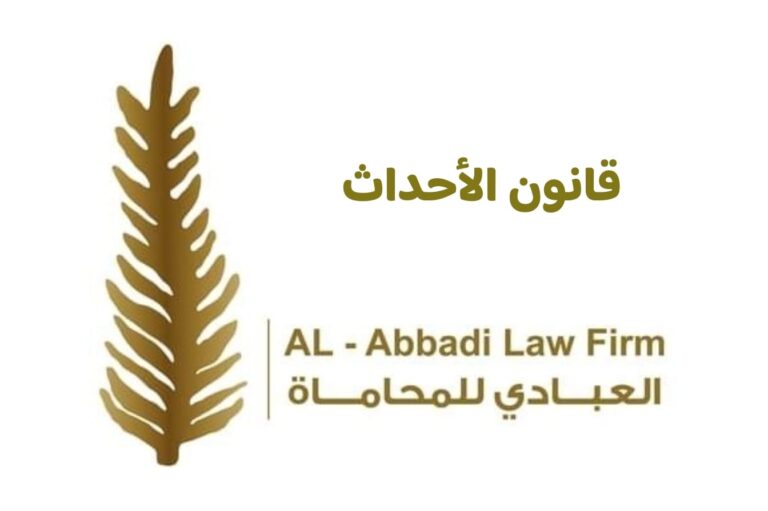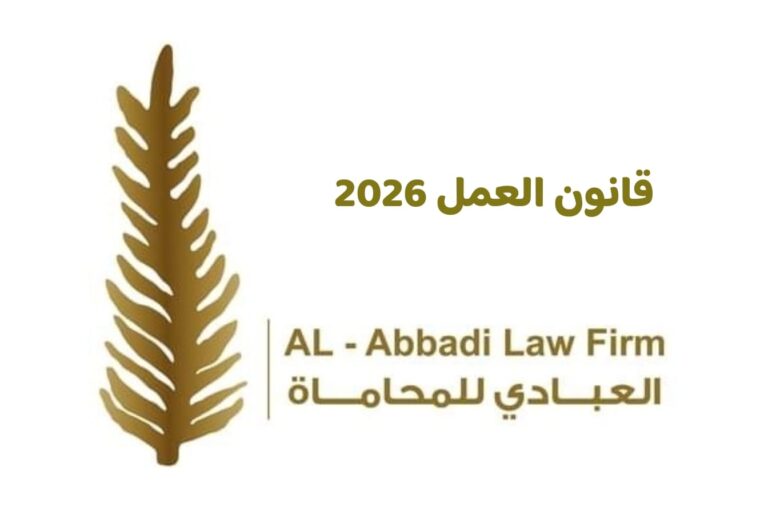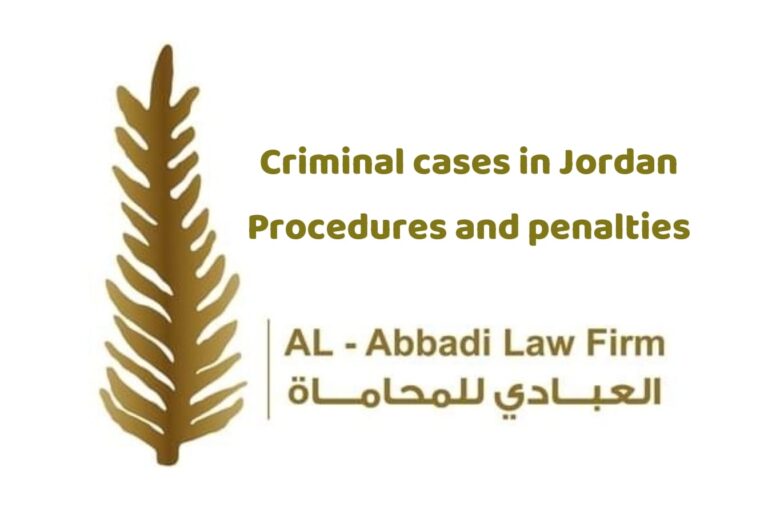جنحة التسبب بإحداث عاهة دائمة بين قانون السير وقانون العقوبات الأردني
جنحة التسبب بإحداث عاهة دائمة بين قانون السير وقانون العقوبات الأردني
دراسة مقارنة، إعداد مكتب العبادي للمحاماة
تُعدّ جريمة التسبب بإحداث عاهة دائمة من أخطر الجرائم غير المقصودة التي يتناولها التشريع الأردني، لما يترتب عليها من آثار جسدية دائمة تمس سلامة الإنسان وحقه في الحياة الآمنة. وقد نصّ المشرّع على هذه الجريمة في قانون العقوبات الأردني ضمن المادة 344، كما أفرد لها وصفًا خاصًا في المادة 27 من قانون السير المعدَّلة بالقانون رقم 18 لسنة 2023.
ورغم وحدة النموذج الجرمي، إلا أن الاختلاف بين النصين جوهري من حيث الطبيعة القانونية وآثار إسقاط الحق الشخصي والعقوبات المترتبة، مما يستدعي بيان أوجه التشابه والاختلاف بينهما.
أولاً: أوجه الشبه بين جنحة التسبب بإحداث عاهة دائمة في قانون السير وقانون العقوبات
1- وحدة مدلول العاهة الدائمة
يعتمد النصّان على تعريف العاهة الدائمة الوارد في المادة 335 من قانون العقوبات، وهي:
كل نقصٍ أو تعطيلٍ غير قابل للشفاء يصيب منفعة من منافع الإنسان أو أي عضو من أعضائه.
2- كلا الجريمتين جنحتان
النصّان يُدرجان الفعل ضمن الجنح وليس الجنايات، رغم جسامة الأثر الناتج عن السلوك الخاطئ.
3- الجريمتان من الجرائم غير المقصودة (جرائم الخطأ)
ولذلك:
– لا يُتصور فيهما الاشتراك الجرمي.
– ولا الشروع، لكونهما لا تقومان على إرادة الجاني إحداث النتيجة.
4- شملتهما أحكام قانون العفو العام رقم 5 لسنة 2024
وقد أُدرجت الجريمتان ضمن الجنح التي شملها العفو العام تحقيقًا لاعتبارات اجتماعية وإنسانية.
ثانياً: أوجه الاختلاف بين الجريمتين
رغم التشابه في الماهية، إلا أن المشرع وضع فروقًا مؤثرة تُغيّر من طبيعة الدعوى والعقوبة وسلطة القاضي.
1- اختلاف العقوبة وشدتها
أ- قانون السير أشد عقوبة
– عقوبة المادة 27 من قانون السير أشد من العقوبة الواردة في المادة 344 عقوبات.
– يملك القاضي وفق قانون السير الجمع بين الحبس والغرامة معاً.
ب- العقوبات التكميلية
فرض المشرّع في قانون السير عقوبة إضافية بموجب المادة 27/أ وهي:
وقف العمل برخصة القيادة لمدة لا تقل عن 6 أشهر ولا تزيد على سنتين.
وهذه العقوبة لا وجود لها في قانون العقوبات.
2- أثر إسقاط الحق الشخصي
أ- في قانون العقوبات (م 344/4)
إسقاط الحق الشخصي يؤدي إلى:
– سقوط دعوى الحق العام
– وسقوط العقوبة
حتى لو اكتسب الحكم الدرجة القطعية.
ب- في قانون السير
إسقاط الحق الشخصي لا يؤدي إلى إسقاط الحق العام ولا إسقاط العقوبة.
وإنما:
للقاضي تخفيف العقوبة طبقاً للمادة 100 من قانون العقوبات بشرطين:
– ألا يكون المدان مكرراً.
– ألا يكون المتسبب بالحادث تحت تأثير الكحول أو المخدرات أو المؤثرات العقلية أو يقود برخصة تخالف الفئة المسموح بها.
3- مسألة التوقيف
أ- في المادة 344 عقوبات
لا يجوز توقيف المشتكى عليه لأن العقوبة لا تتجاوز السنتين.
ب- في المادة 27 من قانون السير
يجوز توقيف المشتكى عليه إذا كان:
– تحت تأثير الكحول أو المخدرات أو المؤثرات العقلية، أو
– يقود دون رخصة.
استنادًا إلى المادة 114/3/أ من قانون أصول المحاكمات الجزائية.
4- جهة الإحالة القضائية
تحال جنحة التسبب بإحداث عاهة دائمة وفق قانون السير إلى محكمة الصلح عن طريق المدعي العام لأن عقوبتها تزيد على السنتين
عملاً بالمادة 11/أ/4 من قانون محاكم الصلح.
بينما تُحال جنحة المادة 344 عقوبات بصفة مختلفة نظراً لاختلاف العقوبة المقدّرة قانوناً.
خاتمة
يتضح من المقارنة أن قانون السير قد شدّد في معالجة جنحة التسبب بإحداث عاهة دائمة حمايةً للأرواح وضبطاً للسلوك المروري، فجعل العقوبات أشد وأكثر ردعاً، وأضاف عقوبات تكميلية تتعلق بقيادة المركبات.
بينما بقي النص الوارد في قانون العقوبات ذا طابع عام وشامل لحالات التسبب بالعاهة الدائمة خارج نطاق المركبات.
ولذلك فإن تحديد الوصف القانوني الصحيح للجريمة، سواءً بموجب قانون السير أو قانون العقوبات، يؤثر مباشرة على:
– جهة المحاكمة.
– مقدار العقوبة.
– أثر إسقاط الحق الشخصي.
– إمكانية توقيف المشتكى عليه.
مكتب العبادي للمحاماة
المكتب الرئيسي: مجمع عقاركو التجاري – شارع الملك حسين – العبدلي – عمان – الأردن.
الهاتف المتنقل: 00962798333357 \ الهاتف: 064922183
الموقع الإلكتروني: www.alabbadilawfirm.com ، البريد الإلكتروني: info@alabbadilawfirm.com
– المادة 344 من قانون العقوبات.
– المادة 27 من قانون السير المعدّلة بالقانون رقم 18 لسنة 2023.
– قانون السير أشد عقوبة ويجيز الجمع بين الحبس والغرامة.
– كما يفرض عقوبة تكميلية هي وقف رخصة القيادة من 6 أشهر إلى سنتين.
– في قانون السير: لا يسقط الحق العام، ويمكن فقط للقاضي تخفيف العقوبة إذا توافرت شروط المادة 100 من قانون العقوبات.
– وفق المادة 27 من قانون السير: يجوز التوقيف إذا كان السائق تحت تأثير الكحول أو المخدرات أو المؤثرات العقلية أو بلا رخصة قيادة، استنادًا للمادة 114/3/أ من قانون أصول المحاكمات الجزائية.
– أما المادة 344 عقوبات فتُحال وفق الإجراءات المعتادة المنصوص عليها في قانون العقوبات وأصول المحاكمات الجزائية.
– نوع العقوبة.
– جهة الإحالة المختصة.
– إمكانية التوقيف.
– أثر إسقاط الحق الشخصي.
– العقوبات التكميلية المترتبة.
ما يجعل الوصف القانوني عنصرًا جوهريًا في نجاح الدفاع.
1- عدم تكرار المحكوم عليه للجريمة (ألا يكون مكرّرًا).
2- ألا يكون السائق تحت تأثير الكحول أو المخدرات أو المؤثرات العقلية.
3- ألا يكون يقود برخصة لا تجيز له قيادة الفئة المطلوبة وفق أحكام قانون السير.
















